VPN services are primarily used because they can protect any data in any communication channel that an online user may use. VPNs are also effective at hiding a device’s IP address when the device is connected to the internet. A growing portion of internet users use VPNs to circumvent content restrictions, website blocks, and censorship programs.
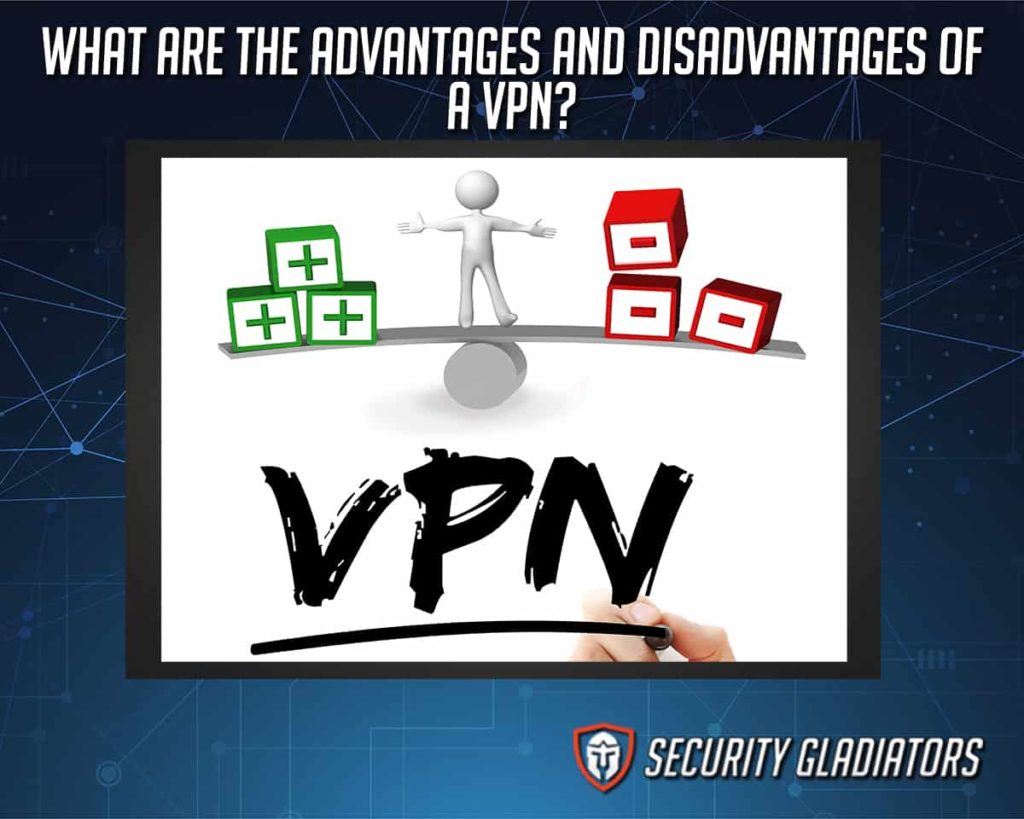
Table of Contents
What Are the Advantages of a VPN?

VPNs are the preferred tool for a better online experience because they are easy to install, set up, and use. Aside from their ability to enhance user privacy and online security, the most obvious benefits of using a VPN are anonymity and change of location. Modern VPNs offer many other benefits such as auto-connect, vast server networks for more location options and strong encryption technologies.
1. Provide Safety Through Anonymity

The two most important reasons for VPN use are privacy and anonymity. VPN services secure public internet connections via encryption. They also hide online activity from bad actors such as hackers and other cybercriminals.
Apps and websites want to track users and record their online activity by collecting personal data. VPNs can prevent that by blocking access to the user’s connection. When all bits of internet traffic leaving and coming to the user’s device are encrypted, the user is automatically anonymized. Most good VPN services provide customers with AES 256-bit encryption which is considered the top-of-the-line military-grade security option.
2. Secure Connection for Remote Work

VPNs help these people remotely create a secure connection with their office network to access files and other resources required for their job. Prior to the COVID-19 pandemic, most employees working in an office environment were able to connect to the internet through an Ethernet connection. Now more and more people have shifted to remote work. Since the data traveling through the VPN connection is encrypted, there is no way for the data to be intercepted by hackers.
This is important:
Users should also understand that corporate VPNs are different from VPNs that cater to individual consumers. They are often designed specifically for accessing the employer’s network and not for providing security and anonymity while on the internet for personal use. More likely than not, the network administrator of the company the user works for will give instructions to the user on how to go about setting up the VPN on the user’s devices.3. Bypass Geo-Locked Content
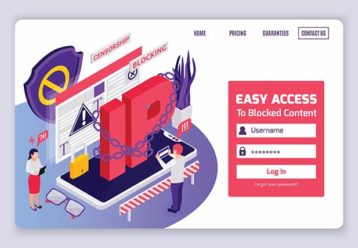
Another major advantage of using a VPN is that it grants the ability to unblock various websites and streaming services. Good VPNs manage to circumvent any web filter reliably every time the user needs to access content that is not available in their region.
Any website or service that wants to track users has to track their IP address to confirm their location and then serve users targeted content. VPNs can stop that from happening by circumventing geolocation blocks. This feature comes in handy when users are trying to access movies and TV series on streaming services.
There is also the problem of companies producing content for specific regions for various reasons. One of the reliable ways to access that content is via a VPN service. Since it violates their agreements, streaming services and content providers actively fight against VPNs that attempt to circumvent geo-restrictions. This is why it is important to use a high-quality VPN because they regularly update their anonymity tools and servers to unblock content.
4. Cost-Effective Security
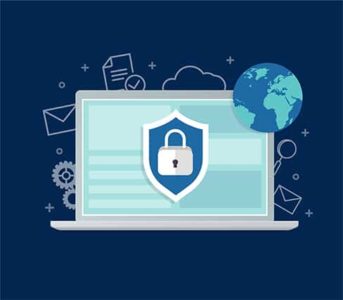
VPNs can help users stay safe, private and anonymous online at a very reasonable price. Most of the top VPNs in the world cost between $2 and $11 per month depending on the length of the user’s subscription period. In exchange, users get top-tier encryption, broad server networks, advanced security features and the ability to change their IP address location.
Most modern VPN services now offer free trials and money-back guarantees, making them even more cost-effective and giving users the opportunity to test the service before committing to it. VPNs also regularly offer seasonal discounts and lifetime subscription packages that further lower the cost. There are even free VPNs on the market, but most of them are ineffective or do not provide anywhere near the level of security provided by paid VPNs.
5. A VPN Can Prevent Bandwidth Throttling

VPNs are very effective against bandwidth throttling where users may experience buffering or long load times on specific websites especially during the end of the month. Internet service providers along with network administrators usually throttle bandwidth to keep certain users within their download limits. Hence they limit the amount of data users can transfer in a certain period.
VPNs can stop ISPs and administrators from bandwidth throttling by encrypting the traffic that a user’s device generates. Since ISPs and administrators cannot see the content of the user’s traffic, the filters in place are unable to throttle it. This is a favorable situation for streamers and torrenters who use up a lot of bandwidth during the month.
6. VPNS Can Bypass Firewalls
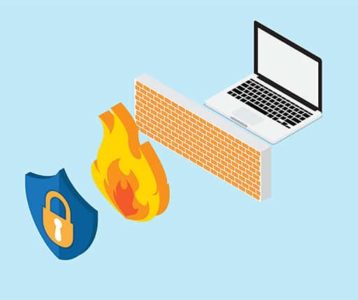
VPNs are very competent when dealing with firewalls, opting to go through them instead of bypassing them. All consumer-grade VPNs use a tunneling protocol that makes users anonymous online and secures their browsing experience. VPNs do this by masking the user’s traffic and passing it through the encrypted tunnel. When the user connects to a VPN server to change their IP address websites, ISPs and government agencies get the impression that the user is from a different country. Additionally, there is no way for the firewall to know if the incoming encrypted traffic should be blocked because its content cannot be seen.
It is through these mechanisms that VPNs are able to unblock services like Netflix and Amazon Prime Video in places like China where such streaming services are not accessible. All the user has to do is pick a server in a suitable country (the U.S. for Netflix), connect to the server and then stream content from Netflix as one would normally.
7. VPNs Make Online Gaming Better

VPNs can make online gaming better by protecting users’ IP addresses and encrypting their gaming traffic. This shields the user from potential swatting and doxxing attempts where another player uses the IP address of the user to find their home address. Disgruntled players can then send emergency services, pizzas or anything else to wherever the user lives. VPNs can also protect against DDoS attacks since the user’s true IP address cannot be seen.
If the user’s ISP throttles gaming traffic then a VPN can hide the user’s activity so the ISP does not know to throttle the connection. Some online games only work in specific regions and if the user doesn’t live in that location, there is no way to access those games. VPNs can help by changing the location of the user to the location where the game is available. The same goes for region-specific DLCs and add-ons.
Online games sometimes ban players who do not behave. Sometimes admins can ban someone for no reason at all, either intentionally or by mistake. By using a VPN, the player can evade IP bans as VPNs can change the IP address of the user.
8. VPNs Might Help You Avoid Online Price Discrimination

VPNs can help users save money on various products that are sold online. If the user deploys VPNs to purchase the right products, discounts can go up to thousands of dollars. Different companies set different prices in different regions for the same services and products. With the help of a VPN, users can switch their locations to the region with the lowest price and make their purchases.
The most popular examples of region-specific pricing include subscription plans to various sports streaming services such as the NBA League Pass and NFL Game Pass. Users can also save money when buying software applications, games and apps. Sometimes, users can avail big discounts when renting cars, purchasing air travel tickets, signing up for hotel rooms and much more.
A few websites have started to require that users input credit card details that belong to a local bank. So even if the user changes location using a VPN server to see the lowest prices, the service may not accept a credit or debit card from a foreign bank. There are also bank fees, exchange rates, and various other charges that are levied on international transactions to account for. Hence, users should first double-check the actual savings before purchasing a product from a cheaper region.
What Are the Disadvantages of a VPN?

The disadvantages of a VPN service have more to do with potential risks, incorrect implementation and bad habits rather than problems with VPNs themselves. Some of the main problems with VPNs, especially for businesses, are scalability, protection against advanced cyberattacks and performance.
1. A VPN May Decrease Your Speed
VPNs have to encrypt the user’s data and then send it to a VPN server which can be located nearly anywhere in the world. Once the data reaches the server it then has to travel to its final destination which will then send data back to the user through the same route. While the top VPNs can minimize it, this increased distance that the data has to travel will decrease internet speed for the user.
2. Dropped Connections
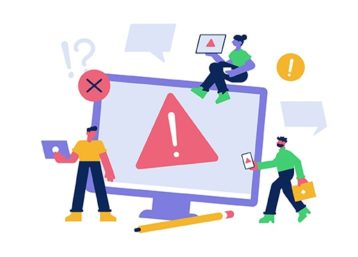
Due to the inherently chaotic nature of the internet, VPN services drop secure connections from time to time. Dropped connections can lead to data leaks which can compromise the security, privacy and anonymity of the user. Most elite VPNs have a kill switch feature to combat this problem, but the real IP address of the user can be exposed if this feature is not present or does not function properly.
3. A VPN Isn’t Legal in All Countries

Depending on where the user lives, the use of a VPN may or may not be legal. Some governments don’t want their citizens to access content the government deems unfit for consumption. Such governments make the use of a VPN illegal in some cases and subject to a fine in others. Since laws are always evolving, the legality of a VPN service is an issue all VPN users have to deal with. Users should always check if it is legal to use a VPN in their region.
4. Using the Wrong VPN Can Put Your Privacy in Danger
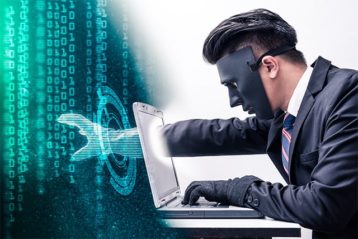
Choosing the wrong VPN can mean disaster for the user’s privacy and anonymity. If a VPN service does not have a good reputation on various forums and review sites then it is likely not good for privacy or online security.
Moreover, different VPNs are available to users for different purposes. A user that only wants to watch Netflix or Amazon Prime Video may be able to get away with a VPN that does not focus on privacy or security but on unblocking ability. However, if a user is concerned about privacy, security and anonymity and ends up signing up for a VPN for streaming then that is bad news.
Note:
A VPN that keeps logs on its users is also bad for privacy, especially for users who download torrents. Then there is the problem of free VPNs. The vast majority of free VPNs don’t protect user data or privacy. In fact, researchers have caught some logging and selling user information.When signing up for a VPN service, the user has to trust the VPN with personal information. If the VPN handles that information worse than the user’s ISP then there is no point in using the VPN for privacy.
5. Quality VPNs Will Cost Money

Quality VPNs protect user data and grant privacy online, but they are not free. While the price typically is not extreme, often around $10 per month at the high end, it may not be within all users’ budgets. VPNs give huge discounts on their two and three-year plans but these require the user to pay for the entire duration upfront with the expectation that the VPN will still be in business at the end of the prepaid period.
Another problem with committing to a VPN service is there is no guarantee the VPN service in question will continue to perform well. A high-quality service today may degrade in quality over time which must be taken into consideration before a user makes a long-term commitment to a service.
6. Not All Devices Natively Support VPNs
Some lesser-known VPNs do not support all platforms. That can become a problem for users who do not use a mainstream device or operating system. For the vast majority of users lack of compatibility won’t be a problem, but for those with older operating systems or even older hardware, it will be difficult to configure most VPNs. More specifically, operating systems like macOS, Windows, Android and iOS are fine, but older versions of Windows, Android, iOS and Linux may not be.
7. The VPN Service Might Monitor Your Activity and Use Your Data

A VPN service might monitor the user’s activity and use their data if it does not have a good reputation. Some VPN services attempt to make money on the side by selling user data despite already charging for their service. As mentioned before, whenever a user signs up for a VPN, they are trusting the VPN service instead of the ISP to take care of their data and ensure that their online activity is kept private.
However, some VPNs do not keep their promise and record user activity. VPNs don’t always record user activity because they want to sell that information. Some VPNs record user data and activity because they want to improve their product. Others do it to develop other products they might want to introduce in the future. A few do it so that if law enforcement agencies come knocking on their door, they can clear themselves. VPNs also monitor users to make sure no illegal activity is taking place via their servers.
8. It Might Be Difficult To Set Up for Business Users
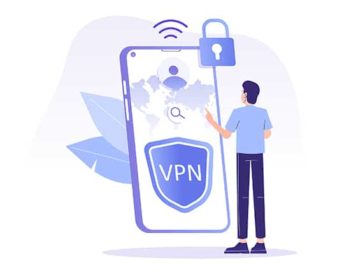
It might be difficult for business users to set up a VPN because of the scale of the operation. Personal users only need to install a VPN app and purchase a package to get privacy and anonymity, but business users have to make sure the entire office network is secure. That is a complex task that many VPNs are not ready to solve. Office networks are always complex and the addition of a VPN increases that complexity. Without a team of network experts, businesses cannot implement VPNs in a way that protects their data and guards their network.
Scalability is another problem business users have to face. It is one thing to provide protection to 10 VPN users, but it is quite another to offer the same protection to thousands. VPN services are also not good at offering granular control. Once a user connects to the VPN service, the user usually gets access to the entire network. Even those areas that are not meant for non-admins. This can put critical business infrastructure at unnecessary risk.
9. Using a VPN Cannot Guarantee 100% Anonymity
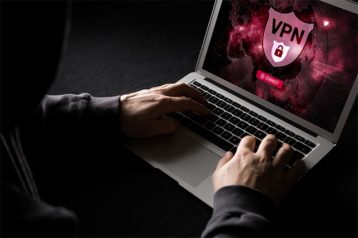
VPNs try their best to protect user data and online identity, but no service in the world can guarantee anonymity each and every time the user connects to a server. The internet is an unstable place and that instability introduces new problems all the time that can compromise privacy and data security.
Besides, corporations, web services, streaming services, websites and apps have other ways of tracking users. If they know the user’s browsing behavior they can use techniques such as fingerprinting and look at the activity of the user’s neighbors to learn more about the user. These are problems VPNs cannot solve.
Moreover, if the user has signed up for services offered by companies such as Facebook and Google then VPNs can’t block their methods of collecting information and monitoring user behavior on their platforms. Apart from fingerprinting, websites and apps also use cookies along with other trackers to gather information about users. VPNs can’t do anything about the information that these services have gathered on users via cookies and other trackers.

